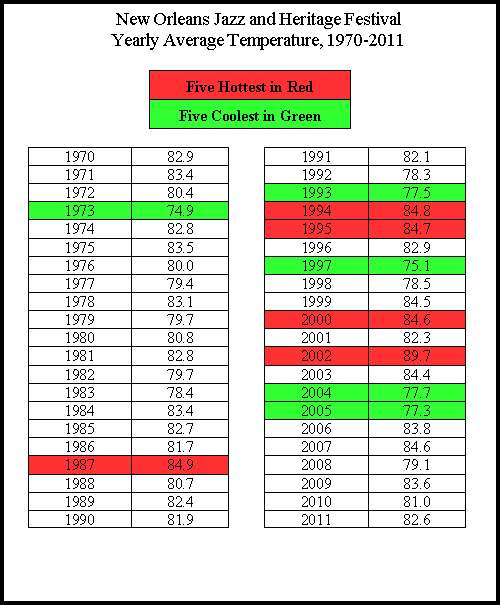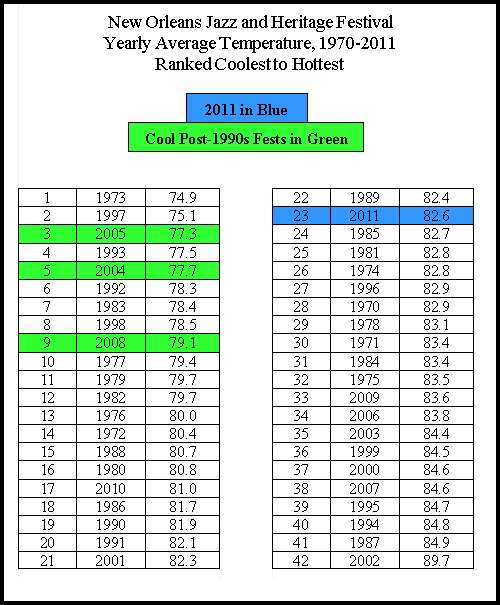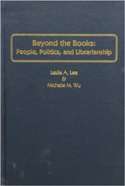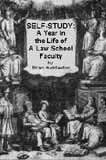At one point Houck recites a litany of the worst predictions of rising global temperatures and, to try to make it more relevant to us here in New Orleans, flippantly says:
So what? Here in Louisiana we will be warmer in summer (think, maybe, 103 degrees at Jazz Fest) . . . . Houck, 19 Tul. Envtl. L. Rev 1, at 27.The source he cites says that:
[It] is projected that by 2100, temperatures in Louisiana could increase about 3°F (with a range of 1-5°F) in spring and summer, slightly less in winter, and slightly more in fall. Envtl. Prot. Agency, Climate Change and Louisiana 2 (1997).(See last year’s discussion for the minor problems with this cite in Houck’s article.)
Since I had been to many Jazz Fests when I read this article, and never remembered the temperature being in the high nineties, I thought this "prediction" was way off base and then, of course, had to figure out when the hottest JazzFests on record were. My original post on this, in 2009, talks about how I got the temperatures for all the past Jazz Fest (a pain in the ass) and about my methodologies in compiling them. Long story short, the hottest Jazz Fest ever was 2002, when the average temperature for the ten days of the Festival period was 89.7°F. Pretty damn hot, but a good thirteen degrees away from 103°F that Houck predicts and well out of even the maximum range by which the EPA says temperatures “could increase.”
This year’s Jazz Fest, with an average temperature of 82.6°F, was the 20th hottest on record. Here are the updated charts, current through the 2011 New Orleans Jazz and Heritage Festival.



Conclusions? The 2011 was statistically right in the middle of all of them; three of the five hottest Jazz Fests were between 1987 and 1995, and three of the ten coolest Jazz Fests have been since 2004. There is no global warming trend evident at Jazz Fest.




No comments:
Post a Comment